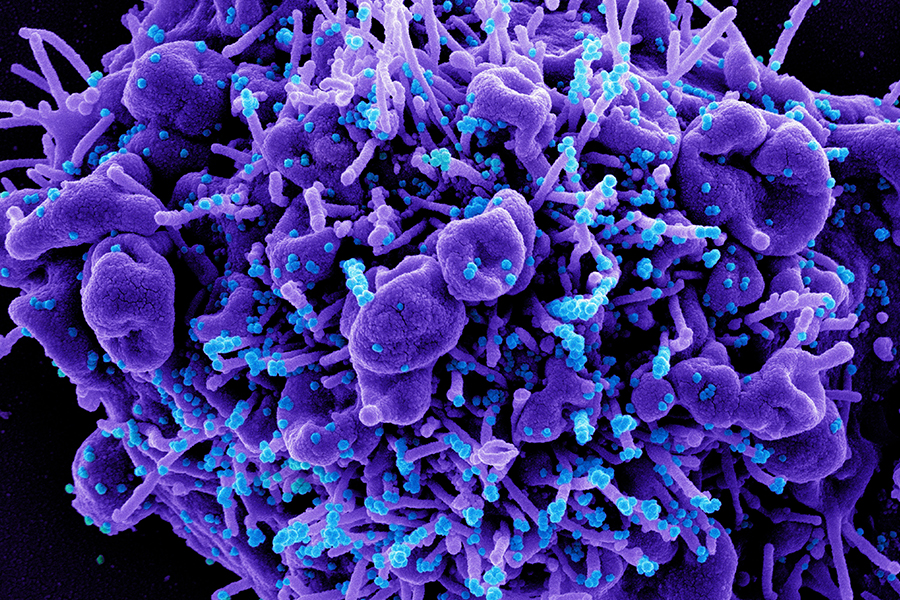Study Finds Immune Dysfunction Is a Significant Risk Factor for COVID-19 Breakthrough Infection

Colorized scanning electron micrograph of an apoptotic cell (purple) infected with SARS-COV-2 virus particles (blue), isolated from a patient sample. Image captured at the NIAID Integrated Research Facility (IRF) in Fort Detrick, Maryland. (NIAID)
June 3, 2022
In a study using the National COVID Cohort Collaborative (N3C) Data Enclave, one of the largest collections of COVID-19 clinical data in the United States, researchers found that immune dysfunction is a risk factor for COVID-19 breakthrough infection among people who have been partially or fully vaccinated against SARS-CoV-2. The study findings were published in JAMA Internal Medicine.
Researchers used N3C data to study 664,722 people who had received at least one dose of a SARS-CoV-2 vaccine. Of that group, people with abnormal or impaired immune systems, including individuals living with HIV or receiving immunosuppressant medications, had a higher rate of COVID-19 breakthrough infection. A breakthrough infection is an infection that happens at least 14 days after full vaccination. Few studies have assessed the risk of COVID-19 breakthrough infection in people with immune dysfunction.
The N3C Data Enclave allowed researchers to identify a link between COVID-19 breakthrough infections and immune dysfunction without conducting time-consuming and costly prospective studies. They drew on a database of electronic health records from nearly 5 million people who tested positive for COVID-19. The N3C currently contains electronic health record data from more than 13 million people. Using these data, researchers quickly determined trends based on vaccination status, COVID-19 diagnosis, individual immune dysfunction diagnosis, comorbid conditions and demographics. Furthermore, the data showed these trends in real-world conditions using people’s electronic health records, instead of in highly controlled clinical trial conditions.
The study findings highlight the need to stay up to date with vaccinations. Fully vaccinated people were 28% less likely to have breakthrough infections than those who were only partially vaccinated. Although COVID-19 vaccines protect against infection and severe symptoms in all groups, people with immune system dysfunction are less protected than people with normal immune levels. Given the study findings, health care providers could recommend other risk-reduction steps — such as mask wearing, social distancing, and more frequent or higher-dose vaccinations — for people with immune system dysfunction. Read the full publication here.
Learn more about the N3C program.


